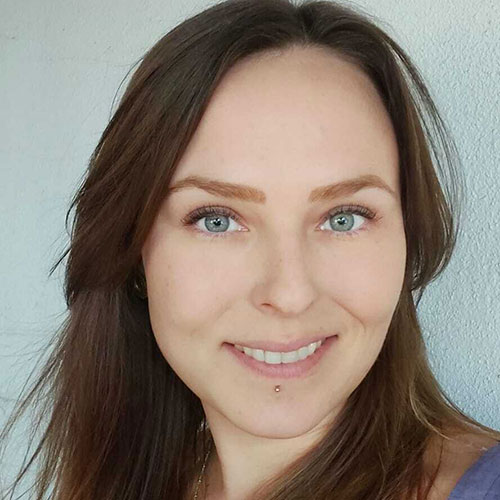Turning forty is a milestone that often sparks reflection. Many people wonder if their finances are on track. By this age, expectations often include having a solid nest egg. The big question is how much money saved by forty is enough. Some say you need years of salary stored away, while others stress healthy financial habits.
The answer depends on your income, goals, and lifestyle. What matters most is creating balance between living today and preparing for tomorrow.
Why Savings Matter by 40
At forty, life usually carries more responsibilities than in your twenties or thirties. You may have children, a mortgage, or family obligations. These realities make savings not just useful but essential. A financial cushion provides security when emergencies strike and options when major life decisions appear.
Savings also equal freedom. They let you change careers, start a business, or even retire earlier. Without that cushion, choices feel limited and stressful. Building a financial base at this stage sets you up for long-term stability.

The Ideal Savings Benchmark
So, what number makes sense? A common guide suggests having three times your annual salary in savings by age 40. If you earn $50,000 yearly, that means about $150,000 set aside. This target is not a strict rule, but it helps measure progress.
At forty, you are often in your peak earning years. Growing savings now gives you momentum toward retirement. Even if you fall short, steady contributions in this decade make a huge difference.
Retirement and Investment Planning
Retirement may still feel far away at forty, yet this is a crucial decade. Money invested now grows faster thanks to compound interest. The more you save, the more future choices you gain.
Aim to save at least 15 percent of your income for retirement. If that feels too high, start smaller and increase later. Automating contributions makes discipline easier and reduces temptation to spend.
Investments should also play a role in reaching financial goals. Options include stocks, bonds, retirement accounts, or real estate. Diversify to lower risks and give your wealth more room to grow. Even simple index funds can help. Together, consistent saving and smart investing form the backbone of your financial cushion at forty.
Emergency Funds, Debt, and Balance
In addition to retirement savings, you need an emergency fund. By forty, this should cover three to six months of expenses. Life brings surprises such as job loss, medical bills, or major repairs. Without savings, debt often becomes the fallback option.
Balancing savings and debt repayment is vital. Focus on eliminating high-interest debt first, like credit cards, while still saving regularly. Lower-interest loans, such as mortgages, can be managed alongside your savings plan. Progress in both areas builds long-term stability and protects your nest egg by 40.

Lifestyle Choices and Spending Habits
The amount of money saved by forty depends heavily on lifestyle. Some people live modestly, while others spend freely. What matters most is honesty about your current and future needs.
Small adjustments can free money for savings without removing enjoyment. Dining out less or avoiding impulse shopping adds up over time. At forty, these choices have long-lasting impact on financial security.
Family Planning, Health, and Insurance
Protecting your health and family is as important as growing savings. By forty, having proper insurance is vital. Health, life, and disability coverage prevent one event from erasing years of effort.
If you have children, saving for their education may also become a priority. Even modest contributions to a dedicated account can grow into meaningful support later. Balancing this with retirement planning is tricky, but remember that loans exist for education, while no one will loan you money for retirement. Securing your future first ensures you can support your children when they need it most.

Common Mistakes to Avoid by 40
Many people fall into traps during this stage. Lifestyle inflation is common, where higher income leads to higher spending instead of savings. Another mistake is delaying retirement contributions in favor of short-term wants.
Waiting too long to invest is risky. Time is your greatest advantage, and every year counts. Skipping emergency funds or insurance can also undo years of progress in one blow.
How to Catch Up if You Are Behind
If you feel behind at forty, do not panic. Many people start late and still succeed. The first step is action. Review spending and cut unnecessary costs. Increase savings rates wherever possible.
Boosting retirement contributions, investing wisely, and exploring side income help close the gap. Even small improvements add up, thanks to compounding. The most important thing is starting now, not waiting.

Building Confidence With Your Money
At forty, savings should not only provide survival but also confidence. Tracking spending, monitoring net worth, and reviewing investments give a sense of control.
Confidence grows from progress, not perfection. Even if you miss certain benchmarks, steady saving builds security. With money supporting your goals, you feel more in charge of your future.
Closing Thoughts
So, how much money saved by forty is enough? A common guide suggests three times your salary plus an emergency fund. Yet, the right answer depends on your goals and responsibilities.
Focus less on a single number and more on steady habits. Consistent saving, smart investing, and balanced debt management lead to long-term success. Insurance and family planning add another layer of protection.
If you are behind, it is not too late. If you are on track, keep going. What matters is using money to support the life you want. With awareness and discipline, financial freedom can become reality.
Disclaimer: This article was created with AI assistance and edited by a human for accuracy and clarity.

